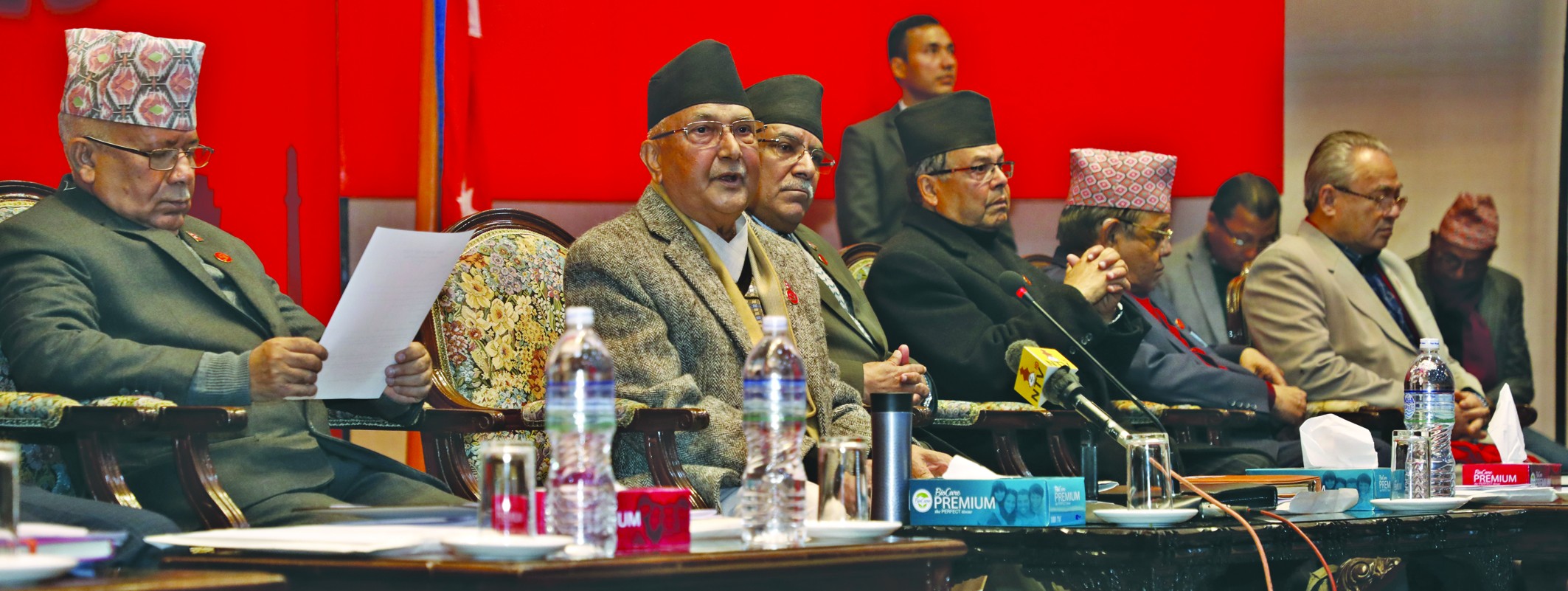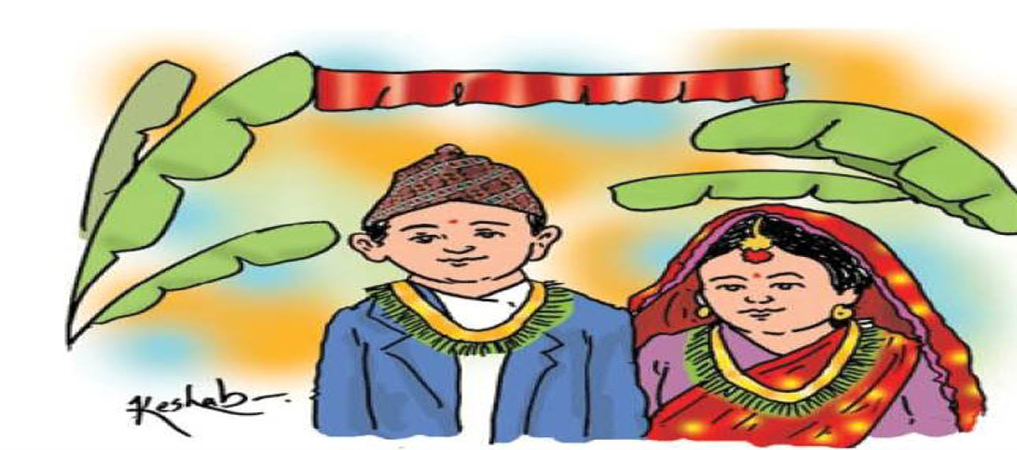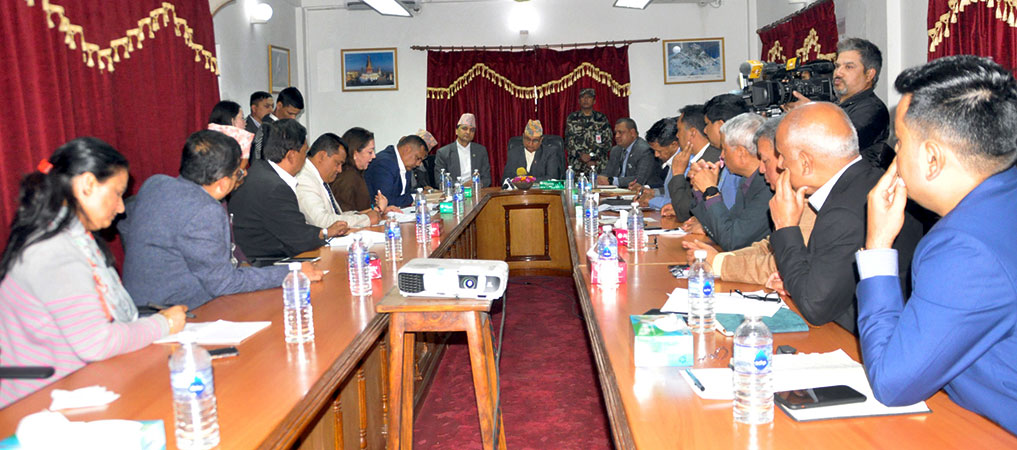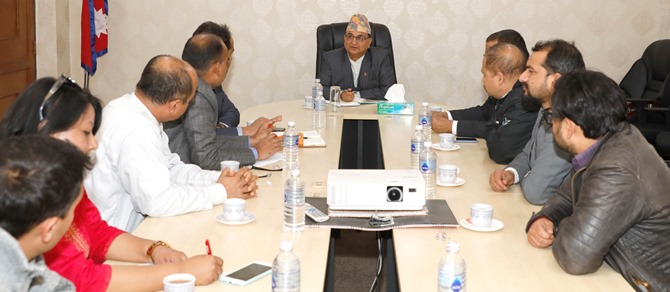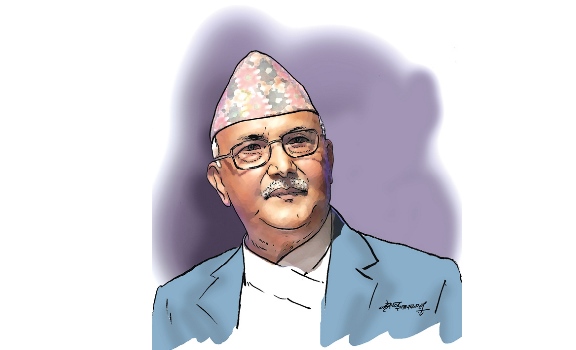Lockdown leaves wage earners, cash-strapped families high and dry
By Arpana Adhikari
Kathmandu, June 7: The ongoing lockdown that started on March 24 has stalled the economy for more than two months. This has sparked unprecedented distress among the socially poor and migrant workers.
The wage disruptions caused by the prolonged lockdown has been particularly hard on the poor, who have little or no saving stock up on essentials.
Amid stories of distress among poorer section, there are urban lower-middle and middle class families who are badly hit too.
Kalpana Maharjan, 46-year-old house owner of Lazimpat, is having the toughest time of her life to arrange livelihood for her two-member family.
Maharjan’s family which is fully dependent on the house rent has been running out of savings to fall upon.
“For the last two months, I haven’t received rent from my tenants. Few of them have gone to their villages, while who are staying are unable to their rent because they are without job for the last two months.
“My tenants depend on relief provided by the local bodies and social activists. But I cannot stand in queue for aid because my dignity holds me back from extending hands to seek aid publicly,” said Maharjan. As there was no option she had borrowed money from her friend to arrange some foods for her family.
Raju Thapa, 49, of Thimi, Bhaktapur shared a similar ordeal. Thapa, who is running his own tourism-related business in Kathmandu, has been worst-hit by the lockdown.
Thapa said tourism and travel was the first casualty of COVID-19 pandemic. His business has been halted for the last six months and now he is running out of savings.
Like Maharjan, Thapa has been seeking help from his friends to solve hand-to-mouth problem. “This is the worst situation I have been facing in my entire life. I have property, but no cash to feed my family.”
A 46-year-old teacher of a private school in Jorpati shared how his 7-member family was left without food for a day as they faced the terrible crisis of money.
In condition of anonymity, he said his family was running out of savings because the school where he had been working was not paying his salary for the last two months.
His son, who works in a manpower company, was also left without salary for the same period. “I have been feeding my family by borrowing money from my relatives,” he said.
Mostly, small shop runners, salespersons, receptionists, beauticians, teachers of locally-run private schools, employees of tourism sector, waiters and staff of hotels and restaurants are badly hit.
It is not just the socially poor, migrants and daily wage earners are also bearing the brunt of the lockdown. The lower middle class families of the society also faced the impact of wage disruptions, said Hari Adhikari, a social activist.
Acknowledging the issue, Adhikari said he had been approached by some middle class families who sought help as they were caught in an awkward situation because their social status held them back from extending their hands to extend their hands for aid publicly.
“They are not poor but have turned helpless without monthly income because their employers did not pay them their salaries and house owners are unable to collect rent from their tenants. They are now struggling to feed their families,” he said.
Economist Dr Chandra Mani Adhikari, former member of National Planning Commission, said the informal sector had been the worst hit by COVID-19. As a result, the cash-starved businesses had either shut shop or delayed worker’s salaries.
In Nepal, more than 62 per cent of the economically active population was involved in the informal economy, said Adhikari, adding, due to the prolonged lockdown, these 62 per cent population are now running out of sources of livelihood.
“The lower masses are now jobless, while the lower middle class have also begun losing jobs and they get no salary. They are in a big crisis and this has suddenly made them vulnerable. At the same time, this crisis will slowly cripple the middle class families.”
Recent News

Do not make expressions casting dout on election: EC
14 Apr, 2022
CM Bhatta says may New Year 2079 BS inspire positive thinking
14 Apr, 2022
Three new cases, 44 recoveries in 24 hours
14 Apr, 2022
689 climbers of 84 teams so far acquire permits for climbing various peaks this spring season
14 Apr, 2022
How the rising cost of living crisis is impacting Nepal
14 Apr, 2022
US military confirms an interstellar meteor collided with Earth
14 Apr, 2022
Valneva Covid vaccine approved for use in UK
14 Apr, 2022
Chair Prachanda highlights need of unity among Maoist, Communist forces
14 Apr, 2022
Ranbir Kapoor and Alia Bhatt: Bollywood toasts star couple on wedding
14 Apr, 2022
President Bhandari confers decorations (Photo Feature)
14 Apr, 2022


